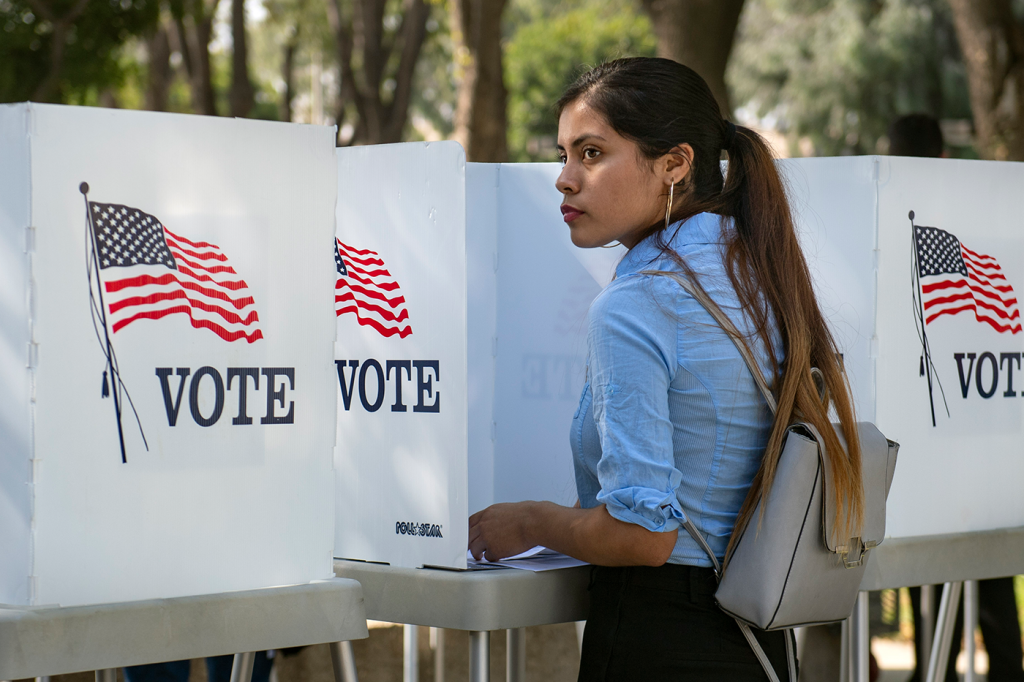Sonja Diaz, Founding Executive Director of the Latino Policy and Politics Institute (LPPI), testified in a hearing on “Voting in America: Ensuring Free and Fair Access to the Ballot” before the Committee on House Administration of the U.S. House of Representatives.
In her testimony, Diaz highlighted how the recent proliferation of voting rights bills threatens access to the ballot and true representation for the nation’s Latino communities and asked Congressional leaders to act and pass H.R.1 to secure access to the ballot box for all Americans.
Highlights in the testimony include:
- The historic gains of Latino voters and other voters of color in our democracy have been met with troubling backlash. UCLA research estimates that 16.6 million Latino voters cast a ballot in the 2020 presidential election, representing the single largest four-year increase in the Latino vote in U.S. history. As a response, as of February 19, 2021, state lawmakers in 43 states have advanced 253 bills with provisions that restrict voting access.
- Evidence has made clear that changes in voting and election administration that seek to restrict access to the ballot box have a disproportionate impact on racial/ethnic minorities.
- Restrictions on Vote-by-Mail requiring voters to pay for postage and requiring signature matching without adequate curing provisions result in a disparate impact on voters of color. Congress can act through H.R.1 to remove these barriers because the bill explicitly provides for no-excuse vote by mail in Federal elections, requires pre-paid postage for mail ballots, provides a national uniform standard on signature verification, and requires states to provide curing periods.
- The threats to democracy in the form of restrictive voting bills across the U.S. are direct responses to the perceived and real threat of an inclusive, multiracial democracy that is not solely bound by the policy preferences of an aging white electorate.
- Congress has the power to stop vote dilution and threats to equal access to the ballot box by setting a national standard through H.R. 1. to modernize our elections and secure access to the ballot box for all Americans.










